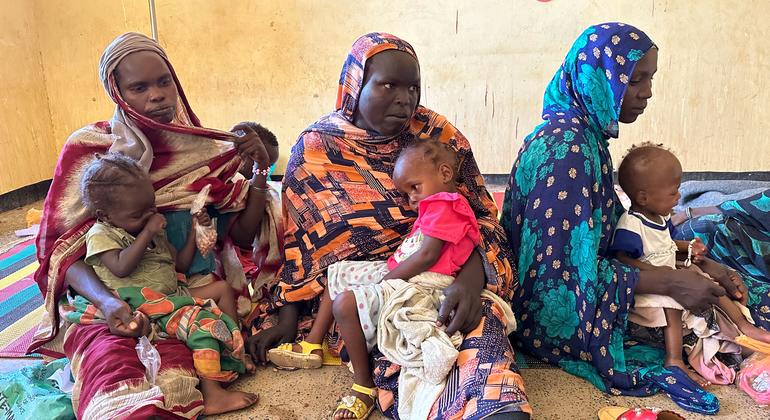In a dire warning issued by the UN Human Rights Council-appointed experts, the situation in Sudan has been described as the worst case of starvation and famine in modern history. The experts highlighted the Zamzam camp in North Darfur, which is home to half a million internally displaced persons (IDPs) facing extreme conditions. Other IDP camps in El Fasher are also at risk of famine.
The experts emphasized the urgent need for the Rapid Support Forces (RSF) and Sudan Armed Forces (SAF) to cease obstructing aid delivery through bureaucratic and administrative barriers, as well as attacks against local responders. They called on foreign governments to halt financial and military support that is exacerbating the crisis. The experts, who do not receive a salary from the UN and do not represent any government or organization, condemned the deliberate use of starvation as a tactic in the ongoing civil war in Sudan, which constitutes crimes against humanity and war crimes under international law.
One of the key recommendations made by the experts was for humanitarian organizations to utilize all available channels for aid delivery, including lesser-used routes, to ensure that assistance reaches the most vulnerable populations. They stressed the importance of access to all areas in order to address the growing humanitarian crisis in Sudan.
Meanwhile, in Lebanon, more than 400,000 people have fled into Syria due to ongoing conflict between Israeli forces and Hezbollah militants. The UN refugee agency, UNHCR, reported that over 260,000 Lebanese and refugees are receiving some form of cash assistance in Lebanon. Access to safe shelter remains a pressing need for those displaced by the fighting within the country.
According to UNHCR, approximately 405,000 people, including both Lebanese and Syrians, have crossed from Lebanon into Syria. The majority of new arrivals are under the age of 18 and are struggling to meet their basic needs. UN Deputy Spokesperson Farhan Haq highlighted the challenges faced by those fleeing into Syria, noting that they arrive in a country already grappling with its own crisis and violence.
UNHCR and partner organizations are providing assistance at Syrian crossing points to support new arrivals. The UNFPA has distributed dignity kits to women and girls through the Syrian Arab Red Cross at newly established Border Health-Protection Support Points. The international community continues to work together to address the needs of those affected by the conflict in the region.
In a separate report released by the UN, the participation of women in the traditionally male-dominated defence sector has been increasing. The report, based on analysis provided by 55 Member States, revealed a 27 percent increase in the number of women in armed forces between 2016 and 2022. Despite this progress, the gender gap in the defence sector remains significant.
On average, women make up 12 percent of personnel in the army, 15 percent in the air force, 14 percent in the navy, and…









